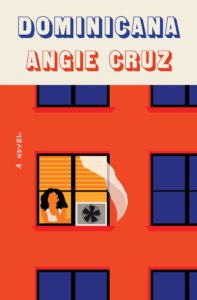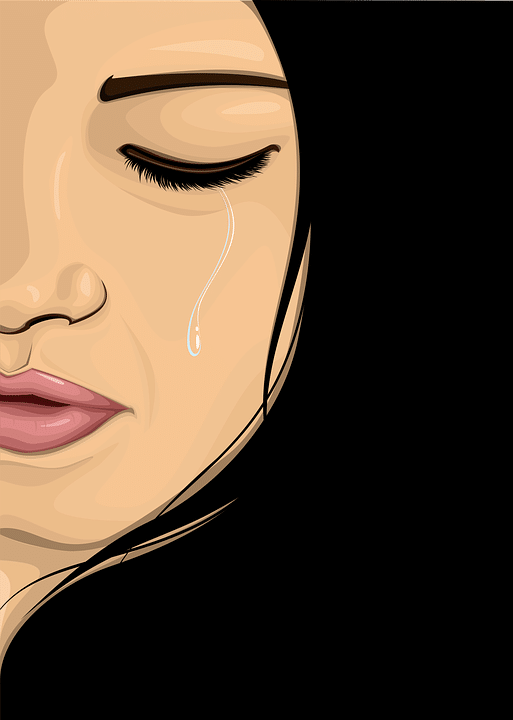 A Wannabe Discourse on Immigration and Empowerment
A Wannabe Discourse on Immigration and Empowerment
Author: Angie Cruz
In the 1960s Dominican Republic, fifteen-year-old Ana Cancion is content, despite the cloud that hangs over her in the form of the Ruiz brothers and her mother’s endless ambition. For years the brothers have visited the family, drinking and socializing, pouring out ominous attention on the young girls. And now, Ana is to wed one – the up-and-coming Juan. Ana’s future, her hopes and dreams, are to be traded by her family for the possibility of more land, more money, and an eventual ticket to America. No one cares what Ana thinks, what she wants, or how the man she has been given to will treat her.
With that, the young girl is caught up in a whirlwind trip, finding herself transported to New York City, hidden away in a tenement, a young wife, a soon to be mother, a girl whose only mooring is the letters from home, filled with requests for money and demands she cannot fulfill. In this new land she doesn’t know the language, is blatantly illegal, has no freedoms, and is abused physically and verbally by her husband, who has his own broken dreams. When he goes back to the DR to secure the family’s fortune against an impending civil war, Ana is left alone with Juan’s brother, the gentle, womanizing Ceaser, and suddenly the possibilities of her new life open up. Like a flower that only blooms briefly, though, Ana knows her duty and knows that with Juan’s return her life will resume its expectation of deceit and violence. Should Ana choose family or love? Duty or independence? With her husband’s temper, and his secrets, will there be any choice?
 Angie Cruz’s story starts strong, with young Ana overwhelmed by the knowledge she tries to deny: her mother’s plans for her and her inability to say no. We feel the heat, see the imperfect relations of the family, suffocate in the mother’s undeniable presence and pressure, and watch the ominous interactions of the Ruiz brothers with a barely-out-of-childhood Ana. As Ana travels to New York, we have misgivings about Juan, and we sense an oppressive resentment will develop between these two people who neither know nor want each other. It’s worse than that though: Juan’s heart is elsewhere, but his temper and its outlet all revolve around Ana.
Angie Cruz’s story starts strong, with young Ana overwhelmed by the knowledge she tries to deny: her mother’s plans for her and her inability to say no. We feel the heat, see the imperfect relations of the family, suffocate in the mother’s undeniable presence and pressure, and watch the ominous interactions of the Ruiz brothers with a barely-out-of-childhood Ana. As Ana travels to New York, we have misgivings about Juan, and we sense an oppressive resentment will develop between these two people who neither know nor want each other. It’s worse than that though: Juan’s heart is elsewhere, but his temper and its outlet all revolve around Ana.
We empathize, feeling the cloistered nature of Ana’s new apartment home, the awkwardness of this husband she does not want, the fear of his nature, and the isolation of living in a new place with an unknown language and customs. Yet we soon lose our bond with Ana. The dissonance starts when she takes her pet pigeons, her only real company, all of whom are named after her family members, and tricks and kills one (by hand!) to later feed to her husband in retaliation. This bout of animal cruelty, with whatever symbolism about family and sacrifice it may (or may not?) have been written to serve, distances us from the character instantly. She is no better than the cruel man she hates. It’s all downhill from there.
The one incident of physical abuse perpetuated by Juan is horrific – maybe too much so – and yet it is brief and never repeated. This seems like a flaw in trying to craft a cruel character, whose real actions seem more like those meant to drive a plot than the ones of an actual person. An abuser, after all, would not be a (dark pun intended) one-hit wonder. Attempts to show the other side of unhappy Juan, through his letters to his real love, also fail. Whatever complicated portrait the author is trying to paint of Juan, he only comes out as an incomplete drawing, to one-dimensional and concocted to be an effective villain. His actions in the conclusion reinforce his weakness, the incongruities of the character the novel says he is and the actions he takes.
From the beginning, we are weirdly in Ana’s head and yet not. The writing is sparse, stream-of-conscious. It soon becomes a bare-bones script of the minutia of the characters’ lives, and the effect is one of innervating slowness. The plot stops and crawls, directionless. The only emotions that do come in, between scenes of Ana cooking and cleaning, are told, never effectively shown: Ana hates Juan, yet fears disappointing her family. It’s a situation with a lot of pathos, but with this lackluster telling, it’s hard for readers to get involved. Real people call to us, plot constructs serve only to teach a dry lesson with no connection to life. Considering the subject matter, this is a real loss, as the moral could have been both powerful and relevant.
History eventually catches up with the moribund couple and Juan flies off to the Dominican Republic to try and save everything he and his brothers have been working so hard to build. Enter Cesear, the one brother who (I guess???) wasn’t involved in the creepy reminiscences of Ana’s childhood. He is everything that Juan isn’t, including handsome, affectionate, and respectful. It’s not long before Ana, turgid in the world’s longest lasting pregnancy, discovers the bravery to start a new life: begin a business, learn the language around her, fall in love, and think about existence outside duty. Naturally, this will soon be brought to a head when mommy-dearest re-enters the picture, the baby is finally born, and Ana once again faces her duties and returned husband
 As all these events take place, Cruz peppers the drama with landmark events, mostly for the Dominican Republic, but we also have Malcolm X literally being assassinated outside Ana’s door. This all spools together into a complicated mess that tries to impart a deep revelation that is never quite articulated or brought to life. It also presumes that the reader knows everything to know about all these events, and so a Spark Notes version is adequate for recreating the emotions and tension of the 1960s New York. The book seems to think that a lazy reference is as good as a powerful statement. It isn’t.
As all these events take place, Cruz peppers the drama with landmark events, mostly for the Dominican Republic, but we also have Malcolm X literally being assassinated outside Ana’s door. This all spools together into a complicated mess that tries to impart a deep revelation that is never quite articulated or brought to life. It also presumes that the reader knows everything to know about all these events, and so a Spark Notes version is adequate for recreating the emotions and tension of the 1960s New York. The book seems to think that a lazy reference is as good as a powerful statement. It isn’t.
By the time Ana starts to find herself, we are more than bored with her and with the weird pace of her life, where every single non-essential moment is described, step-by-step, including the need to secretly pee in a park and how soggy the food Ana tries to sell at the World’s Fair gets; every big event, however, is glossed over (infidelity, confrontations with Juan, and Juan’s return). The conclusion takes away everything the book has been trying to build for Ana, once again stealing the heroine’s budding power. It’s unrealistic, goes against the creation and modus operandi of a particular character (who knew exactly what she was doing from the beginning and what it would cost) and ultimately underrates the real struggle a woman in such a position – illegal, abused, young, naïve – would have to go through to escape her life and start a new one.
I think that Dominicana was so popular, not for its own merits, but because people are interested in engaging in this conversation right now and focusing on the difficulties of an immigrant’s life. The raw material is here, within the structure of the story, as is the potential. But in the end, this book fails to truly capture the pain and poignancy of the struggle it wants to depict, the conversation it wants to have. There are other books out there that open this conversation while maintaining the story’s integrity, reader’s interest, and do not involve pointless descriptions of animal cruelty. There are other books out there that capture the hope and pain many individuals experience, instead of providing the skeleton of a story that ends with a happily-ever-after deus-ex-machina.
– Frances Carden
Follow my reviews on Twitter at: https://twitter.com/xombie_mistress
Follow my reviews on Facebook at: https://www.facebook.com/FrancesReviews
[AMAZONPRODUCTS asin=”1250205948″]
- Book Vs Movie: The Shining - April 6, 2020
- Thankful For Great Cozy Mysteries - December 13, 2019
- Cozy Mysteries for a Perfect Fall - October 20, 2019


